1. California: “Game-Only Whale Shooting Rule”
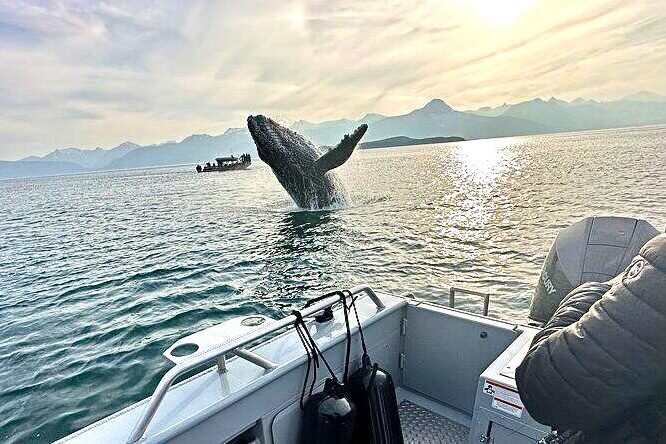
In California, it’s illegal to shoot any game from a moving vehicle, unless that “game” is a whale. Yes, you read that right: you can shoot a whale from your car. All other game animals? Off-limits while in motion. While this sounds absurd, the idea seems rooted in an outdated loophole: whales aren’t typically hunted this way, so they were singled out by default. Of course, whale hunting is heavily regulated by other laws, making this odd exception practically meaningless, but technically, it’s still on the books.
2. Alaska: “No Whispering While Moose Hunting”
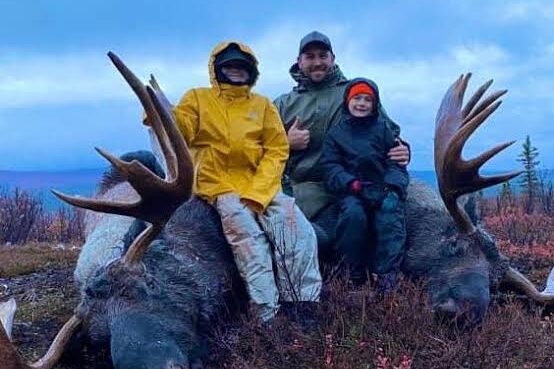
In Alaska, it’s actually illegal to whisper in someone’s ear while they’re hunting moose. The goal? To prevent distractions that could cause a hunter to miss, or worse, shoot dangerously. Big game hunting demands full focus, and this quirky rule ensures no one startles the hunter in the wrong moment. Believe it or not, this law is serious enough to be mentioned in wildlife-safety materials. Hunters are advised to keep conversations strictly after the hunt, otherwise they could technically face fines for disturbing the hunt, an odd but purposeful safety measure.
3. Florida: “Don’t Molest the Manatees”
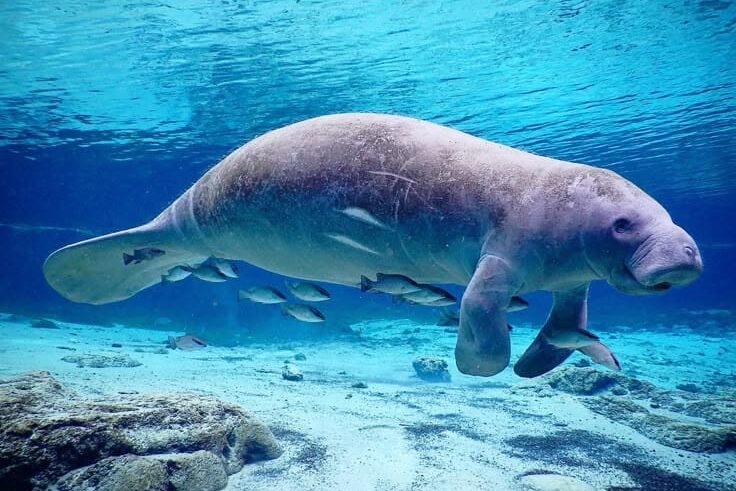
In Florida, the law states it’s illegal to molest a manatee, even a harmless rub or petting counts. The purpose is to protect these gentle marine mammals from harm or disturbance, especially in waters they share with swimmers and boaters. This law is part of broader conservation efforts. You can still swim near these creatures, but any contact, no matter how well-intentioned, is off-limits. Violations can result in hefty fines, emphasizing that “harmless” behavior can still upset delicate wildlife.
4. Georgia: “No Donkeys in Bathtubs”

Georgia law forbids keeping a donkey in a bathtub. This strange ruling likely came about after practical jokes or ill-advised attempts at housing, or transporting livestock in unusual ways posed safety or sanitation risks. Though the idea of a bathtub donkey is comedic, this law reinforces a serious principle: animals need proper living conditions. It conveniently prevents backyard antics from becoming animal welfare issues or public nuisances.
5. Indiana: Monkeys Can’t Smoke

In Indiana, a 1920s-era anti-smoking law technically applies even to animals. In 1905 near South Bend, a performing chimpanzee named Jocko Dooley was arrested, tried, and fined $5 for smoking a cigarette on stage, human owners also reportedly paid the fine . The statute still exists, making it illegal to force a monkey to smoke, though enforcement today would be nearly unheard of. This odd legal relic reflects how an early public health law was written broadly and interpreted literally, even when applied to a chimp. While no modern zoo or performer risks prosecution today, the legislative language remains unchanged, and notable as a curious case of literal law meeting absurd context .
6. Kansas: No Shooting Rabbits From a Motorboat
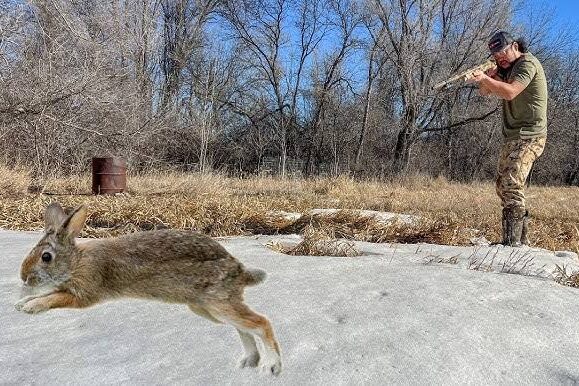
Kansas state law explicitly forbids shooting game animals, like rabbits, from a motorboat unless the person has a handicapped hunting permit . The statute (K.S.A. 32‑1003) was designed to ensure fair chase and safety by preventing fast-moving vehicles from being used to unfair advantage when hunting small game. The rule reminds hunters that even in tradition, sportsmanship and public safety must guide behavior. It also shows how wildlife laws can target niche hunting practices, even though few people today hunt rabbits from boats, the statute remains enforceable on the books .
7. Kentucky: Permit Required to Dye Ducklings

Under Kentucky Revised Statutes §436.600, you can’t dye or color baby ducks or chicks and sell, exhibit, or give them away, unless they are sold in groups of six or more . Specifically, dyeing just one or a few ducklings (like making a single blue duckling) is illegal. The law was likely created to prevent novelty trades and animal mistreatment. This reflects broader concerns about animal welfare: dyeing young birds for fun can harm them or lead to neglect. The penalties, $100 to $500, underscore that seemingly silly pranks can cross legal and ethical lines .
8. Louisiana: No Tying Alligators to Fire Hydrants
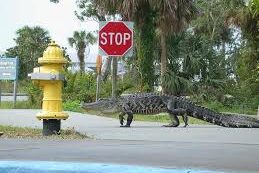
Louisiana law prohibits tethering any animal, especially dangerous wildlife like alligators, to a fire hydrant . This reflects both public safety and municipal practicality: hydrants must remain accessible in emergencies, and alligators are clearly hazardous if left unsecured in urban areas. Though informal chatter sometimes frames this as a bizarre one-liner law, it’s more accurately a side effect of two different statutes, one banning exotic pets like alligators, another regulating obstruction and tethering around hydrants. Still, it survives in many strange law lists as a standout oddity.
9. Maryland: No Lions at the Movies
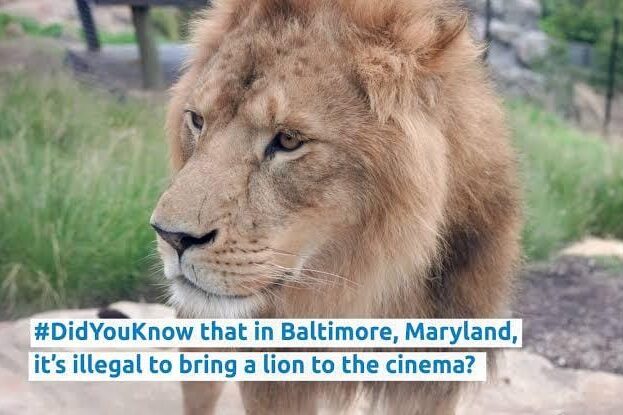
In Maryland, state law forbids bringing a lion, or any exotic wild animal, to a movie theater . This isn’t just a humorous rule, it’s rooted in public safety, animal welfare, and concerns over unregulated exhibition of dangerous species in crowded indoor settings. Passed in response to growing exotic animal ownership in the mid‑20th century, the law applies broadly beyond theaters, prohibiting private individuals from transporting or exhibiting dangerous wildlife in public spaces. It targets public risk and discourages the casual use of exotic animals as entertainment .
10. Minnesota: It’s “Illegal to Tease Skunks”
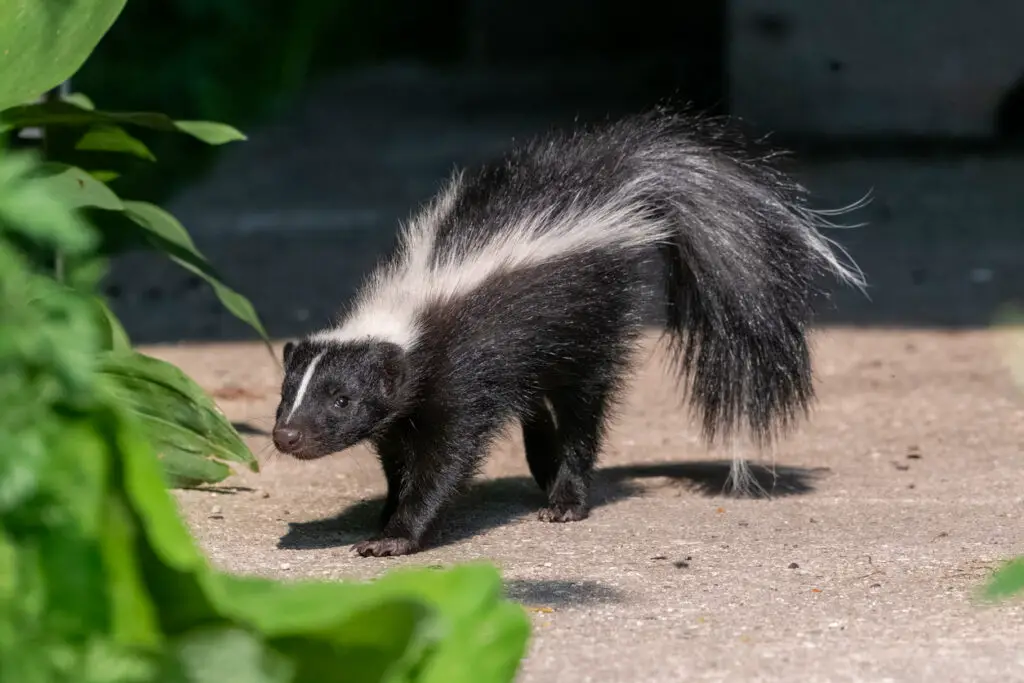
Although widely repeated, the claim that Minnesota bans teasing skunks is likely folklore rather than law. Journalists and legal experts have found no current statute explicitly prohibiting teasing. What does exist, however, is regulation banning the import, export, sale, barter, or exchange of live skunks, which may have sparked confusion. That brush with legend hides a real concern: skunks can carry rabies, and unpredictable interactions can be dangerous. Homeowners are advised to avoid provoking them and to take care if one settles nearby, especially striped skunks, which are considered unprotected in Minnesota and can legally be removed on private property .
11. Montana: Sheep Must Ride With a Chaperone
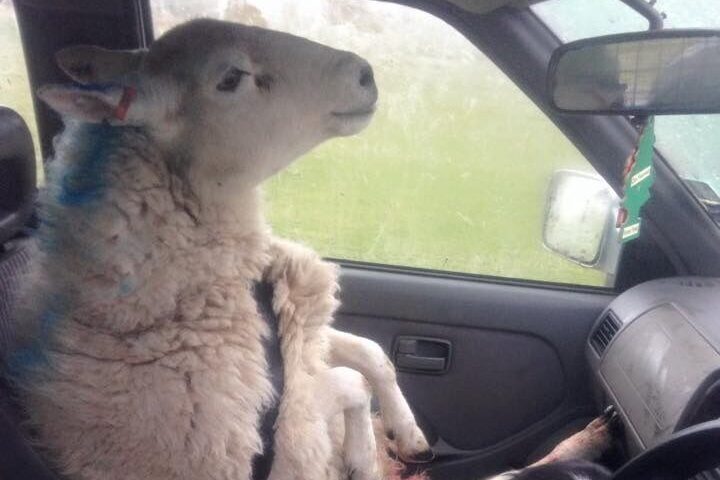
A statute in Montana requires that sheep transported in a truck be accompanied by a person who acts as a chaperone. This rule was designed to ensure that sheep are monitored during transit and don’t interfere with safe vehicle operation . This ancient-sounding law is rooted in livestock safety: unattended sheep might tumble out, be stolen, or distract the driver. Despite sounding whimsical, the rule remains part of the state’s livestock transport regulations and reflects a pragmatic focus on animal welfare and road safety .
12. Nebraska: Whales Are Protected, Even Though None Exist
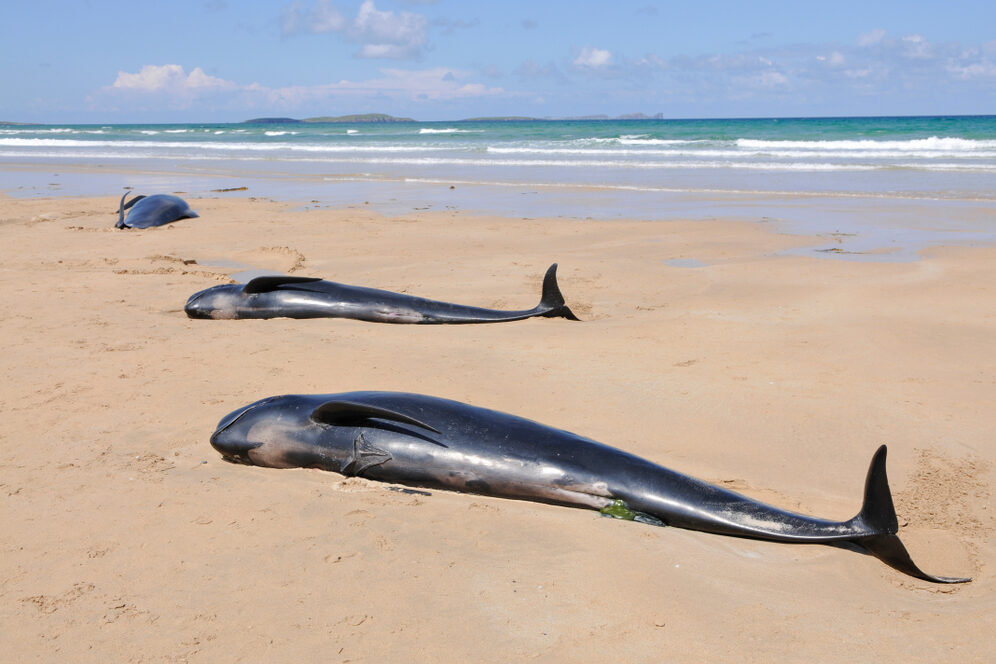
Nebraska’s Nongame and Endangered Species Conservation Act prohibits taking (hunting, capturing, harassing) any listed endangered or threatened species, including whales. Technically, this shields whales from fishing or capture, even though whales don’t inhabit Nebraska inland waters . This oddity illustrates how laws often list broad categories of species, regardless of local presence. The rules aim to support wildlife conservation generally, but with no whales in the state, this clause is purely symbolic, yet still legally enforceable .
13. Nevada: No Camels on Highways during Rush Hour
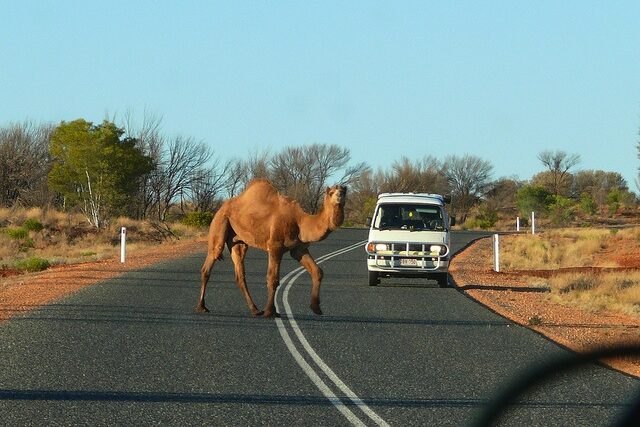
Nevada law prohibits camels from walking on highways. The idea is to prevent slow-moving beasts clogging busy roads during peak morning hours. Yes, this rule was likely aimed at livestock or novelty motorcades, but it still turns up in compilations of odd laws in the state. While enforcement is practically nonexistent today, the rule serves as a relic of a time when animals occasionally shared roadways, even in New York City. It underscores how traffic laws began before motor vehicles dominated streets.
14. North Carolina: Elephants Can’t Plow Cotton Fields
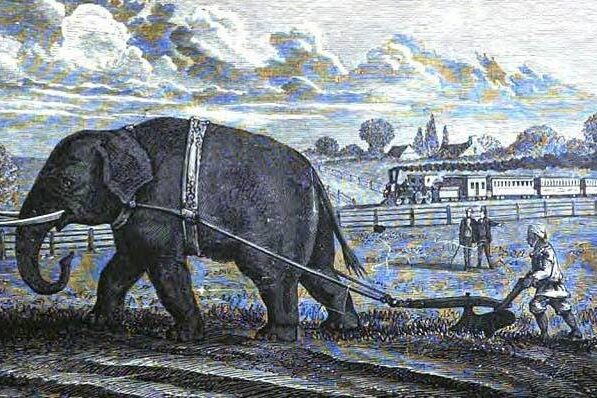
In North Carolina, an old statute prohibits using elephants to plow cotton. This law arises from an era when exotic animals were sometimes imported to rural farms as novelties or for heavy labor. The rule was created to discourage misuse or unsafe handling of large animals not suited to farm work. It reflects both animal welfare concerns and practical farming norms. Elephants are not suited to arthropod-heavy American soil or typical farm implements, and a law banning their agricultural use remains, given its absurdity and the lack of modern relevance.
15. Ohio: “Don’t Get a Fish Drunk”
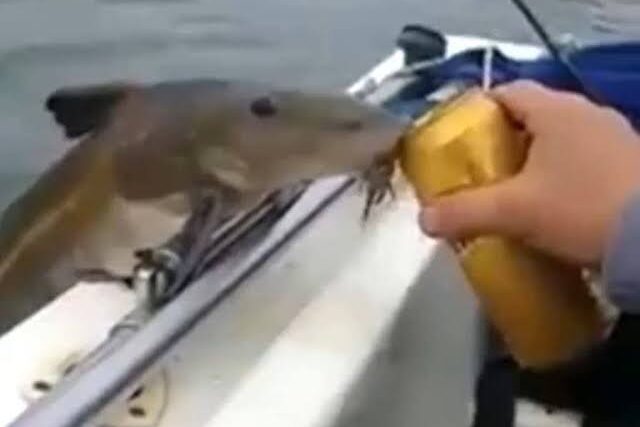
Ohio has a curious old rule (likely mythical) that warns against intoxication of fish, essentially “no getting fish drunk.” But legal experts and state officials agree there’s no actual statute banning drunken fish; it’s likely a false interpretation of pollution laws about wastewater runoff containing alcohol from farms or grain silage. Still, the idea has captured the public imagination and is still repeated in lists of quirky laws. It remains a fun reminder: always double-check legal claims, even if they sound hilarious, and treat this one as entertaining folklore, not enforceable law.
16. Oklahoma: “Bear Wrestling Is Illegal”

In Oklahoma, bear wrestling (and horse‑tripping) is firmly outlawed under Title 21, §21‑1700. This law bans promoting, hosting, or participating in events where bears are forced to wrestle humans or animals are tripped for entertainment, violations carry up to a year in jail or $2,000 in fines. Efforts are underway to repeal this law: House Bill 1269, introduced February 2025, aims to remove the bear‑wrestling statute entirely by November 1, 2025. Until then, it remains a strict protection against cruel animal spectacles.
17. Oregon: “No Fishing with Canned Corn”
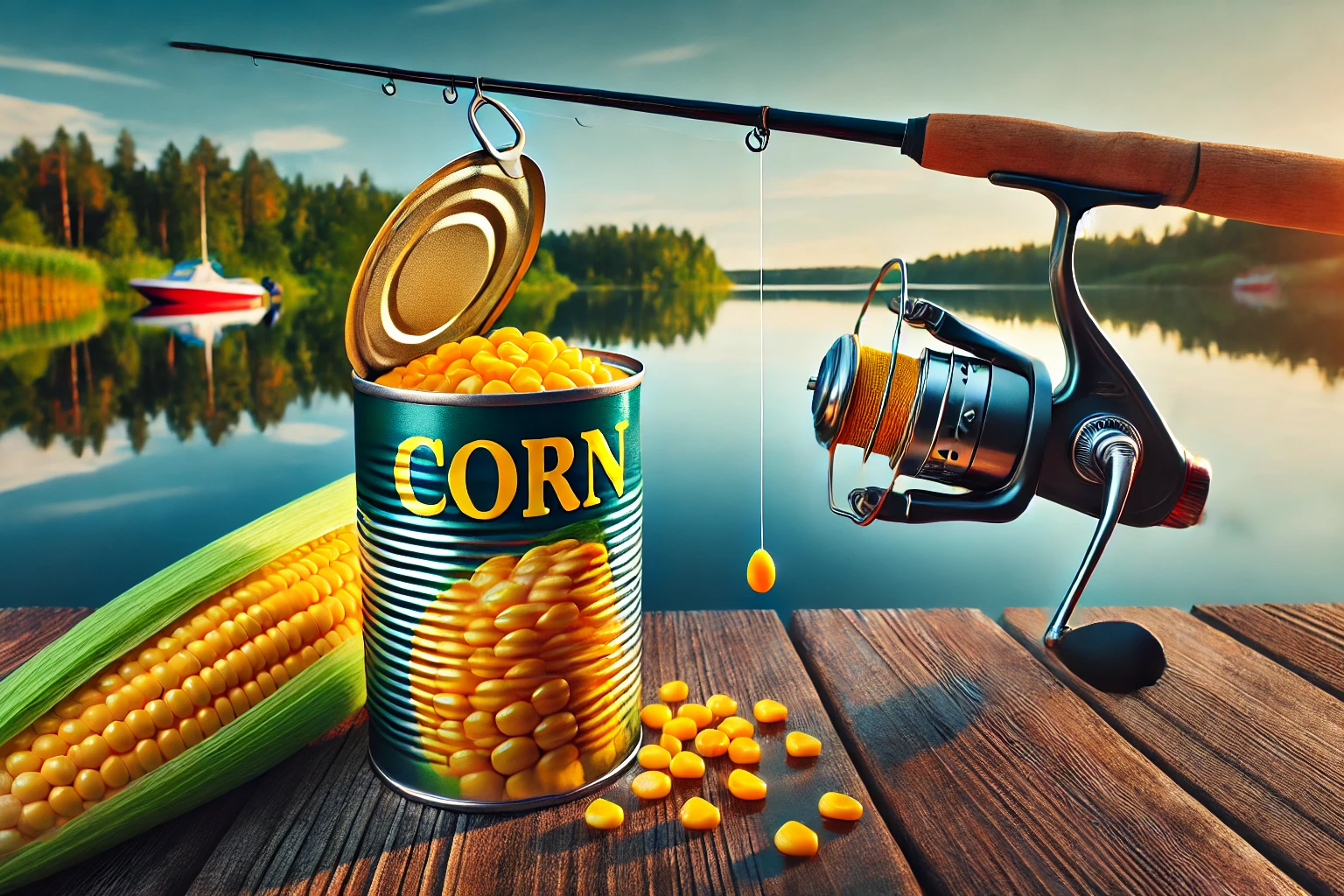
In Oregon, anglers aren’t allowed to chum (bait) waters with canned corn, though using corn directly on hooks is generally acceptable. Historically, the law prevented clogging waterways and unbalancing fish diets, though current restrictions mainly apply to chumming large quantities. This rule highlights ecological concerns: excess corn in rivers can harm native species, disrupt ecosystems, and create sanitation issues. It’s a niche regulation, but one that reflects Oregon’s care for aquatic environments.
18. South Dakota: “Pants Required for Horses in Inns”
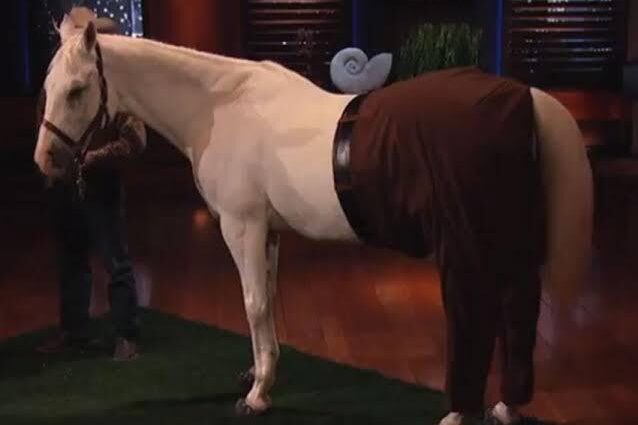
South Dakota reportedly has a quirky law stating horses must wear pants to enter the Fountain Inn. Though difficult to confirm in official codes, the image of a horse in trousers at a bar conveys an old-world sense of absurd decorum and humor. If real, this rule likely comes from broader statutes regulating cleanliness or rules about animals in inns, perhaps pun intended, rather than enforced. Either way, it shows how far local ordinances could go in expressing community standards or avoiding mischief.
19. Texas: “Buffalo, No Shooting from a Hotel”
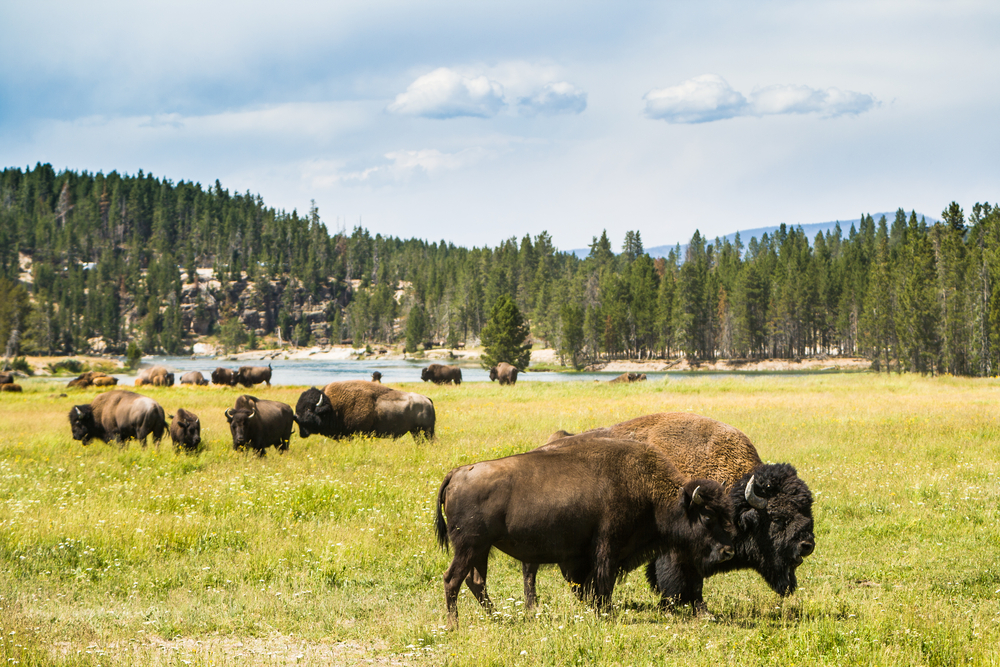
Texas law criminalizes shooting buffalo from a second-story hotel window. This comes from a period when buffalo (bison) were hunted near towns, and hotels often overlooked town squares. The law sought to prevent bullet ricochets and protect both hotel guests and townsfolk below. Though buffalo are now protected as wildlife and this situation is unlikely today, the law remains. It serves as a historical nod to frontier life and evolving attitudes about public safety.
This story 19 Strangest Animal Laws Still on the Books in the U.S. was first published on Daily FETCH


